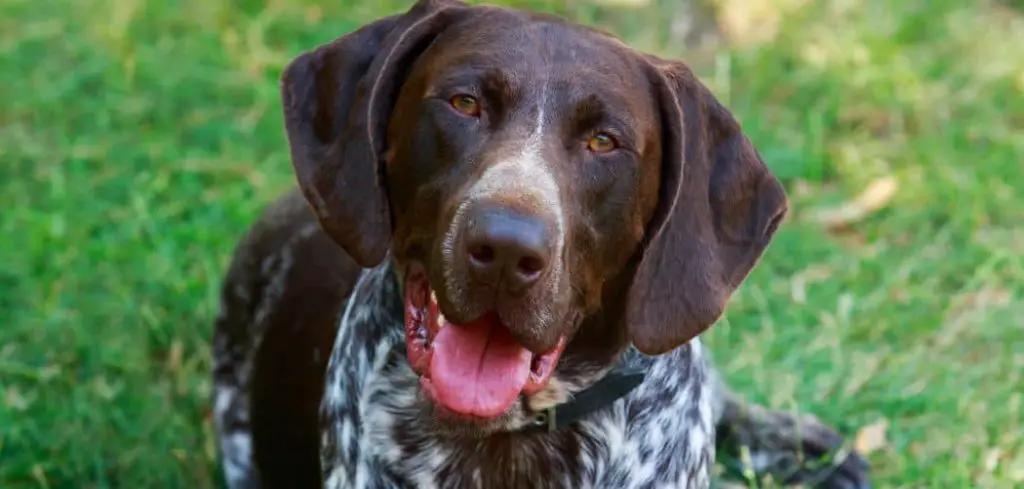When your dog is both gassy and refusing to eat, it’s not just uncomfortable — it can be a sign of an underlying issue affecting their digestive health.
We outline the common causes of dog gassy and not eating, what you can do at home, and when to seek veterinary help.
Dog Gassy and Not Eating — Why It Happens
A dog that’s gassy and won’t eat may be dealing with digestive upset, food intolerance, dietary indiscretion, or more serious internal issues like pancreatitis or intestinal blockage.
Excessive gas (flatulence) is often the result of fermentation or inflammation in the gut. When it’s paired with loss of appetite, the concern becomes more serious.
These symptoms can stem from mild issues like a recent dietary change or be signs of more severe conditions like organ dysfunction or infections.

Common Causes of Dog Gassy and Not Eating
Dietary Indiscretion
Dogs love to scavenge, and eating spoiled food, trash, or non-food items can lead to stomach upset and gas.
If your dog recently raided the garbage or snuck table scraps, they may experience excessive flatulence and nausea, which can reduce appetite.
The stomach and intestines become irritated, causing discomfort and bloating.
Food Intolerance or Allergy
Some dogs develop sensitivities to ingredients in their food, such as beef, dairy, or grains.
These reactions often present with symptoms like gas, vomiting, diarrhea, and poor appetite.
The immune system reacts to the offending food, leading to inflammation in the gut and disrupted digestion.
Gastroenteritis
Gastroenteritis, or inflammation of the stomach and intestines, can cause both flatulence and loss of appetite.
Dogs with gastroenteritis may also vomit, have diarrhea, or appear lethargic.
The inflammation interferes with normal digestive processes, leading to excess gas and nausea.
Read more: Dog Shaking and Not Eating (What this means)
Pancreatitis
Pancreatitis is a painful condition where the pancreas becomes inflamed, often after consuming fatty foods.
This condition disrupts digestion, leading to vomiting, abdominal pain, gas, and anorexia.
It requires veterinary intervention and may be life-threatening if left untreated.
Intestinal Blockage
If your dog has swallowed something that’s now stuck in their intestines (like a toy, bone fragment, or sock), they may develop severe gas, abdominal swelling, and refuse to eat.
This is a medical emergency, as a blockage can lead to tissue death and infection.
Bacterial Overgrowth or Parasites
Imbalances in the gut microbiome or parasitic infections can disrupt digestion, leading to flatulence and reduced appetite.
Dogs may also have diarrhea or a gurgling stomach. Treatment typically involves dewormers or antibiotics and a modified diet to restore balance.
What to Do If Your Dog Is Gassy and Not Eating
Start by removing any recently introduced food items or treats that may be causing the symptoms.
Offer a bland diet such as boiled chicken and rice in small portions to help settle the stomach.
Make sure your dog has access to fresh water at all times and monitor their behavior closely.
Gentle walks can sometimes help relieve mild gas buildup.
If your dog shows mild improvement, continue the bland diet for a few days before slowly reintroducing their regular food.
You can also consider a vet-recommended probiotic to support healthy digestion.
Avoid giving your dog any human medication or over-the-counter remedies unless specifically directed by your veterinarian.
When to Call or Visit Your Vet
Contact your vet if your dog:
Has persistent or worsening gas and doesn’t eat for more than 24 hours
Vomits repeatedly or has diarrhea that lasts more than a day
Shows signs of pain (whining, guarding the belly, restlessness)
Has a swollen, tight abdomen
Is lethargic, weak, or unresponsive
These may indicate a serious issue like an intestinal blockage or pancreatitis that needs immediate care.
Read more: Dog Panting and Not Eating (What’s going on?)
Key Takeaway
If your dog is gassy and not eating, pay attention — their digestive system may be struggling due to dietary indiscretion, allergies, or something more serious.
While some cases resolve with supportive care and bland food, others need swift veterinary evaluation.
Trust your instincts and don’t wait too long to get professional advice if your dog isn’t bouncing back.
